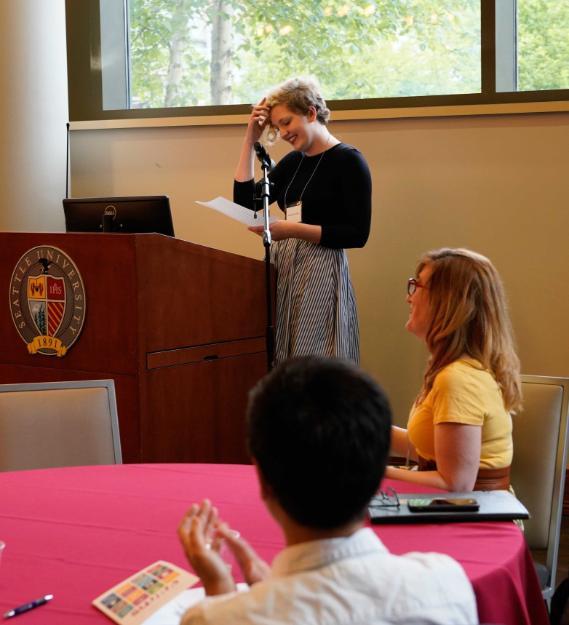
Seattle University Undergraduate Research Association Conference
Friday, May 14, 2021
SUURA is an annual celebration of student research. Undergraduate students in all fields of study are eligible to submit and present their research. Students may be nominated by their faculty to present, may be asked to present as part of their major requirements, or may self-select to present individually or in research pairs or groups.
This year, all presentations will be conducted virtually via Canvas in order to accommodate COVID-19 social distancing.
Student researcher presenters will each have their own dedicated Canvas page to disseminate their projects and findings in the manner they feel is most appropriate. Canvas pages will be available for viewing beginning Wednesday, May 12th through conference day Friday, May 14th.
Online student presentations may take the form of one or both of the following:
- Recorded Oral Presentation: An in-depth, pre-recorded 10-25 minute oral presentation on your research project and major findings. You may use visual aids (e.g., PowerPoint slides) or supplemental media to assist participants as they listen to you present your oral presentation.
- Written/Poster Presentation: A visual presentation of your research, which may include a single visual summary (e.g., poster), or multiple visual aids (e.g., poster panels, images, or slide deck). You are encouraged to include a brief (~5-10 minute), pre-recorded video summarizing your work to assist participants as they read through your written presentation.
Each student research presenter Canvas page will include a Discussion Board to facilitate dialogue between the presenter and meeting participants. Presenters are asked to be available for online discussion with interested participants, either from 9:30 am-12 noon or 12 noon-2:30 pm, the day of the conference.
Academic departments will have the opportunity to host synchronous Zoom round table discussions and receptions, beginning at 2:30 pm, the day of the conference. The intent is to provide a community space for continued dialogue and acknowledgment of their student researchers and their work. (The use and format of these Zoom sessions will be at the discretion of each department.)
